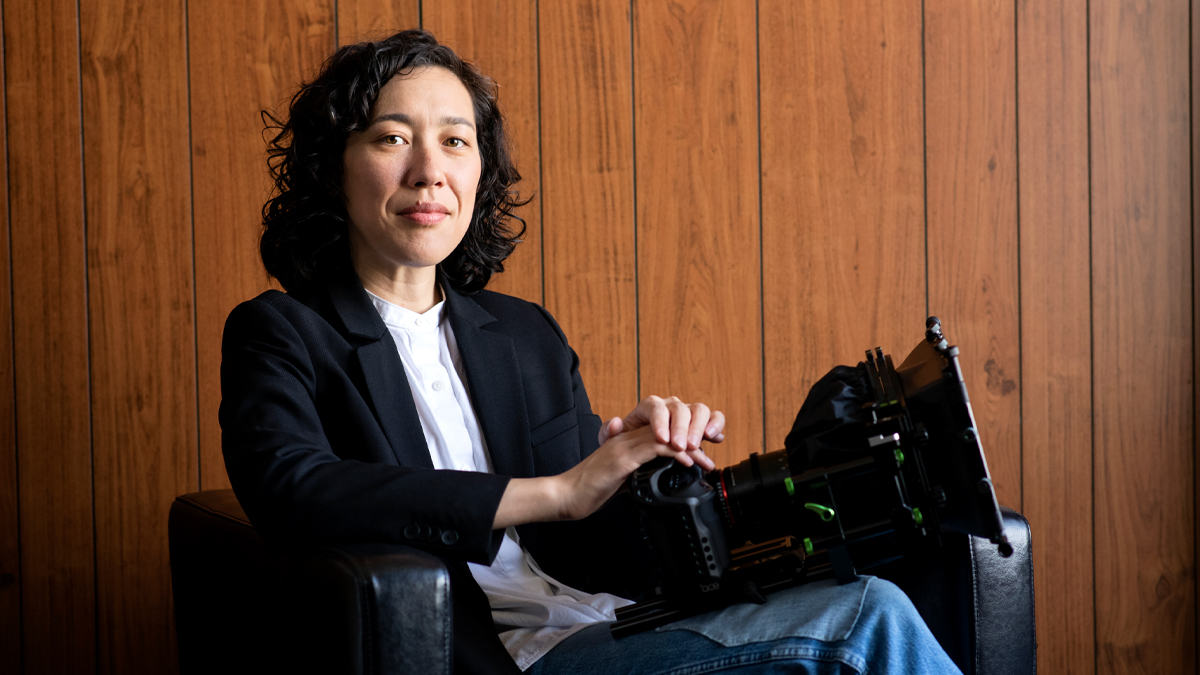Revealing student potential through new mediums
Vera Brunner-Sung is helping cultivate student transformation

In 2016, her second year at Ohio State, Vera Brunner-Sung began teaching Moving Image Art and was introduced to Turner Adornetto — an engineering student taking the class at a pivotal time in his collegiate career.
Adornetto found Brunner-Sung’s discussion-style class stimulating. Brunner-Sung was impressed by Adornetto’s passion for filmmaking.
“I absolutely noticed him transform,” Brunner-Sung said.
Not only did Adornetto throw himself into assignments, but his intellectual engagement during class critiques stood out.
“He wanted a more rigorous experience, not only in the feedback he was giving classmates but in what he wanted for his own work,” Brunner-Sung said. “He was very invested.”
Part of the reason Adornetto stayed invested was because Brunner-Sung welcomed him into the medium of filmmaking.
“Filmmaking is very subjective, and she made a point of valuing each student’s eye,” he said. “She saw my potential, which came at a very important time when I was searching for that part of myself. Without her I don’t know that I would have explored anything outside of engineering.”
Brunner-Sung submitted Adornetto’s final project to the DigiEYE film showcase. Following that experience, Adornetto continued to seek Brunner-Sung out to make more films, so the two created a filmmaking independent study course. From that came another Adornetto film, “Node,” that was selected for the Athens International Film + Video Festival.
As an award-winning filmmaker who has had work presented at festivals and museums around the world, Brunner-Sung understands the gravity of these moments.
“It can have this transformative effect on you,” she said. “People are taking you seriously as an artist.”
Brunner-Sung said Adornetto’s willingness to seek out the help of faculty and the opinions of classmates illustrates how students can gain the most from their college experience.
“The students’ job is to pull as much as they can from their teachers and as much as they can from their fellow students,” Brunner-Sung said, paraphrasing famed artist and educator Corita Kent. “That’s really the answer.”
Adornetto continued to seek out professors from other disciplines to help him feed his interests. His Denman Forum mentor was David Horn, a comparative studies professor, and part of the project was presented in Swahili to Salome Wekisha Fouts, senior lecturer and director of African languages, who helped Adornetto with his language skills.
“The attitude among faculty is definitely accessibility — it’s encouraging and inspiring,” he said. “These are leaders in their fields, but they treat you almost like a colleague.”